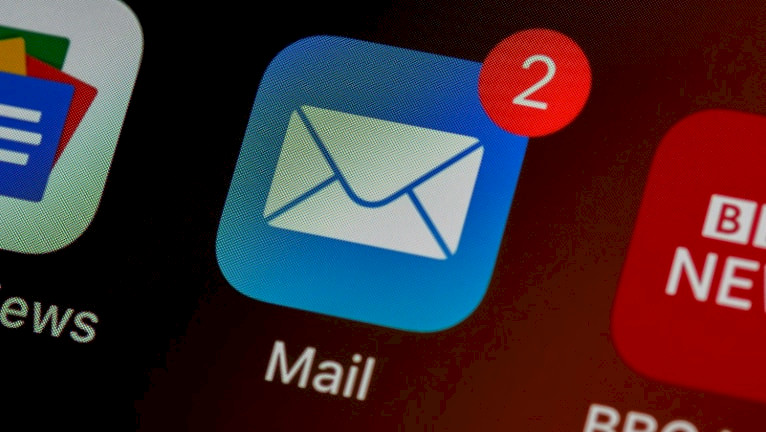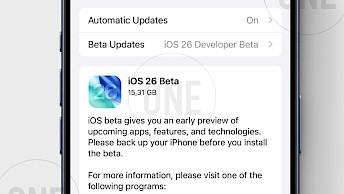Email marketing can get you noticed – but sometimes by the wrong people

Famous Irish poet and playwright Oscar Wilde, celebrated for his wit and repartee, once said:
“There’s one thing worse than being talked about – and that’s not being talked about…”
Which is exactly the point of email marketing campaigns - to get companies’ products, people’s blogs and all manner of publicity stirred up by an intended audience. But the more successful an email campaign, the more visible the author of that campaign, and the more likely they are to attract the attention of hackers and cyber criminals.
One easy way for those running such campaigns to stay safe online is to use a 1Click VPN, which can be installed, just as the name implies, within 1 click of a mouse (or a tap of the finger) as a browser extension on any computer or mobile device.
VPN stands for Virtual Private Network. It’s a surprisingly simple system, which involves the VPN provider placing a ‘middleman’ or intermediary server between the user’s device and their regular internet service provider (ISP). This intermediary server acts in two ways. Firstly, it anonymizes the connection so that even the ISP can’t tell who is connected to the internet, nor where they are located. This location scrambling can also be extremely useful to avoid geographical restrictions when streaming on platforms like Netflix or the UK BBC’s iPlayer.
Secondly, the VPN’s server carries state of the art security systems that can detect malicious activity from potential hackers and phishing attempts, disconnecting the offending internet protocol (IP) address before any harm can be done.
Visibility equals 'hackability'
Imagine this fictitious but perfectly possible scenario: An ecommerce site has an email campaign ongoing to sell designer shoes. The emails carry a link to, say, a TikTok video, which shows an influencer leaping about in the retailer’s featured funky footwear.
The influencer (literally) sings the praises of the products, increasing sales by a significant percentage. But of the thousands of addresses included in the email campaign, even via a reputable platform like Mailchimp or HubSpot, there will be email addresses that have been taken over by hackers.
The moment that a cyber-criminal receives an email from a genuine commercial company, the first thing they do is take a look at that organization’s website and payment protocols. Firstly, they try to ascertain if they can somehow break in to obtain credit card details and divert payments to other servers. Then they might also try to attack the genuine business with ransomware, which can completely wipe all the files and folders on a company server until a cryptocurrency ransom is paid to undo the havoc.
The VPN – a virtual shield and cloak…
But if the business or individual instigating the email campaign used a VPN on all the devices used to access the internet, the intermediary server would cloak the location and identity of the server sending the emails in the first place.
If a hacker received an email from a designer shoe company, and that company’s website shows the organization as headquartered in Dallas, Texas, then the VPN cloaking could show the emails as emanating from, say, London England. This would confuse hackers into finding which server to attack.
A neat analogy of a VPN might be akin to leaving a money clip in full view on the passenger seat of a brand-new Cadillac, parked up on a corner of a precarious neighborhood on the South Side of Chicago. It’s very likely that within minutes, some opportunist criminal will break the window and steal the cash.
But using a VPN would be like placing that money clip under the seat of a battered 20-year-old compact Chevy; nobody is going to give the vehicle a second look.
In short, cyber criminals and hackers tend to go for low hanging fruit. A VPN user only has to make the criminal’s job even slightly more schlep than it needs to be, and the miscreant is likely to move along to an easier victim.
Easy to install, even easier to use
All that an e-commerce owner needs to do is install a 1Click VPN onto the device they’re using to send the emails and the resultant IP address cloaking will probably be sufficient to deter most opportunist online crooks. This can avoid a disastrous data breach; and what’s more, the VPN user can even nominate and change their apparent geographical location each time they send an email as part of a sales campaign.
For example, in the case of the designer footwear eShop, they could appear to be in Michigan on Monday, Turkey on Tuesday and Wisconsin on Wednesday! Any cyber-crooks’ heads would be spinning so fast they’d just wonder what was afoot with these international shoe sellers and walk on by!
In summary, using a VPN to protect any small business or individual running a promotional email campaign is the most sensible precaution anyone can take, and, after all, it’s cost free. What’s not to like?





